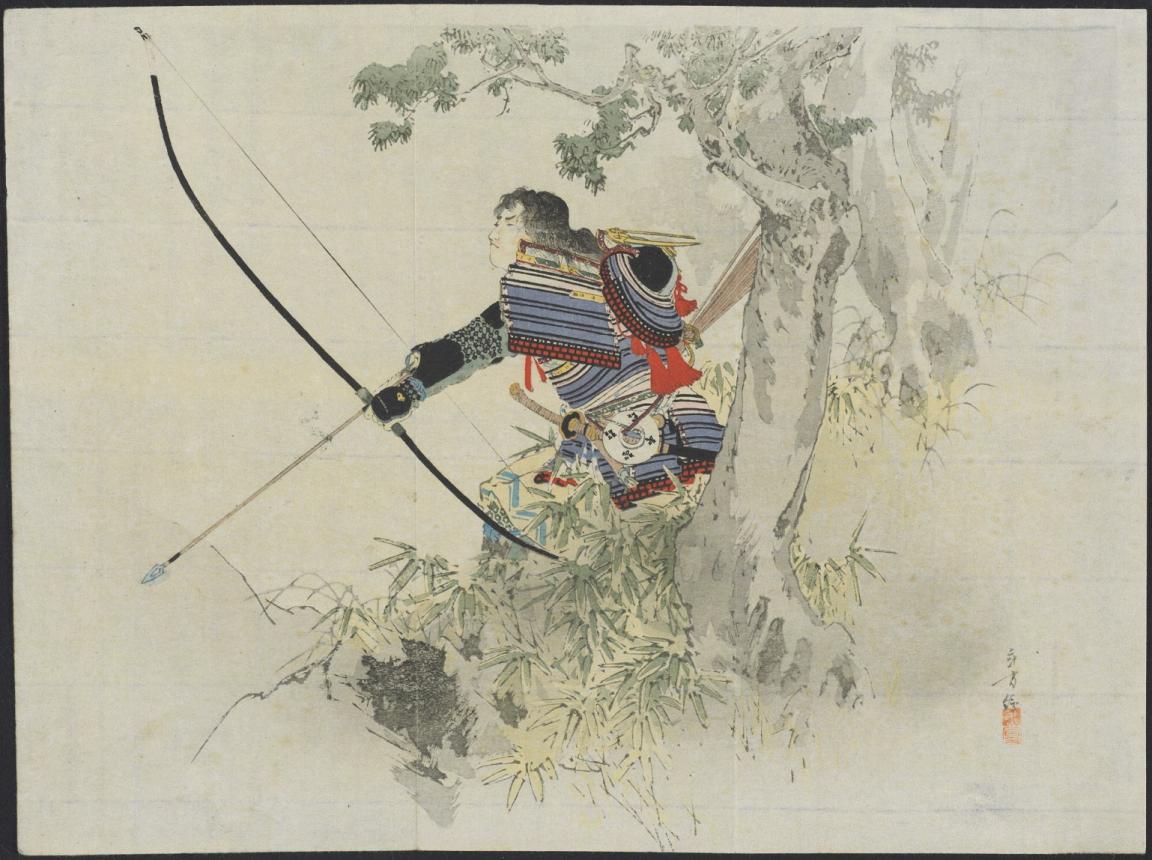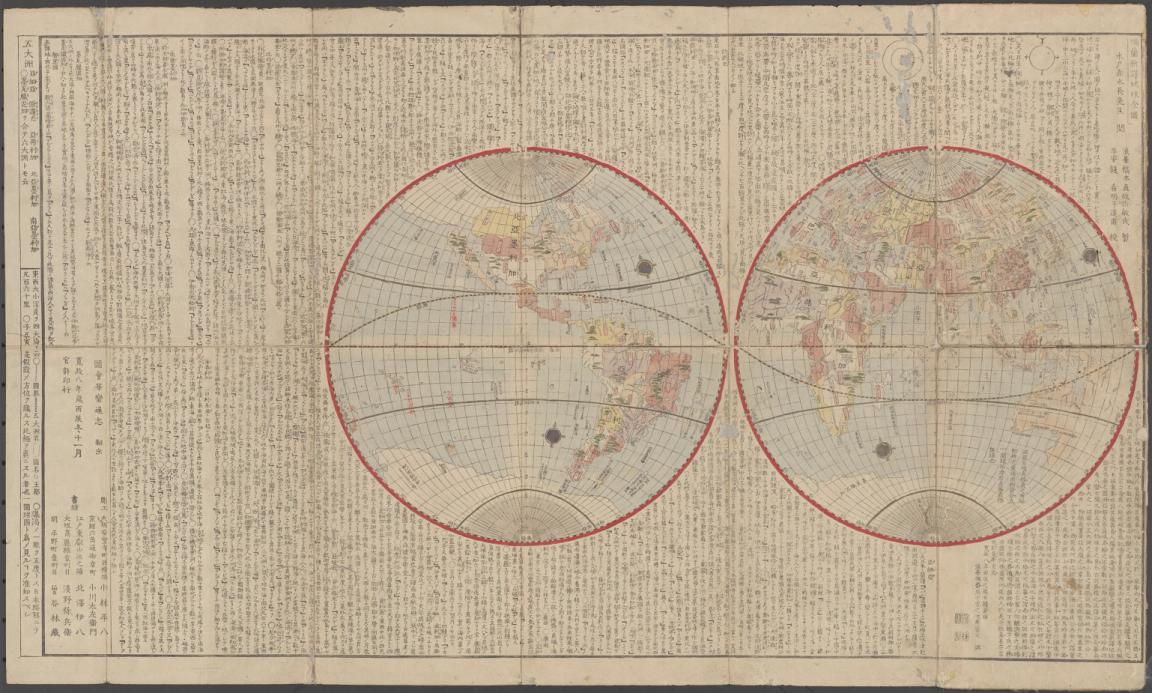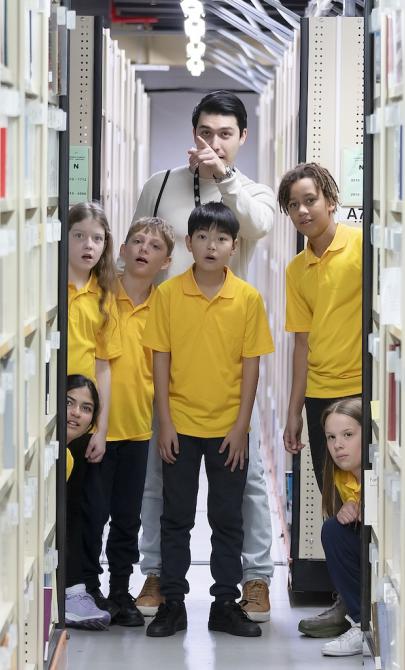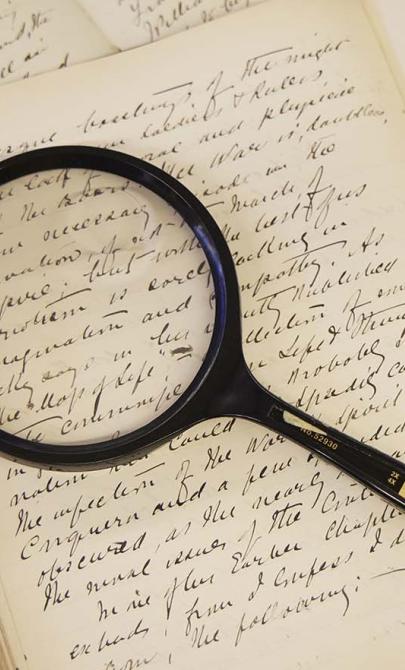Japan and the West
The arrival of Europeans and its influence on Japan
The Portuguese and Spanish brought new trade opportunities and weaponry that would significantly alter Japan’s political and military landscape. At the time, Japan was embroiled in the Sengoku Jidai (Warring States Period), with daimyos and clans vying for power.

Toshikata Mizuno, Eishi sassō Hakubunkan, Tōkyō, 1899, nla.gov.au/nla.obj-152419290
Toshikata Mizuno, Eishi sassō Hakubunkan, Tōkyō, 1899, nla.gov.au/nla.obj-152419290
The introduction of matchlock guns
Europeans introduced matchlock guns, which changed Japanese military tactics that had long been centered on sword fighting and archery. Many Japanese leaders, like Oda Nobunaga, recognised the strategic advantage these guns provided. Soon after their introduction, swordsmiths and metalworkers in Japan began producing firearms domestically, and by 1575, Japanese troops were using firearms effectively in battle. Nobunaga's victory over the Takeda clan’s cavalry, achieved through skilled use of firearms, was a pivotal moment in the unification of Japan, underscoring the profound influence of Western technology on Japanese warfare.
The influence of missionaries
Christian missionaries brought new religious ideas, and some daimyos, eager to trade with the Europeans, converted to Christianity in exchange for valuable foreign goods, including weapons. This association of religion with military power caused some unease among Japanese officials and contributed to growing suspicion about foreign influence.
Activity 1: Discuss isolationism
Explore the potential risks and benefits of isolating a country from the outside world.
- What are the dangers of closing off from other nations, in terms of trade, technology, and diplomacy?
- How might isolation affect Japan’s growth in the long term, both positively and negatively?

Sōkichi Hashimoto & Sekisui Nagakubo, Oranda shinyaku chikyū zenzu Kitazawa Ihachi, 1796, nla.gov.au/nla.obj-232371885
Sōkichi Hashimoto & Sekisui Nagakubo, Oranda shinyaku chikyū zenzu Kitazawa Ihachi, 1796, nla.gov.au/nla.obj-232371885
The Closed Country Policy (Sakoku)
Under the Tokugawa Shogunate, initial openness to foreign influence began to fade. Concerned about potential threats from foreign traders and missionaries, as well as competition from other nations like China, Tokugawa Ieyasu’s grandson, Tokugawa Iemitsu, issued a series of Exclusion Acts in the 1630s. Known as sakoku (鎖国 – Closed Country), these policies aimed to tightly control foreign interactions.
- Goals of Sakoku: The Closed Country policy intended to minimise foreign influence that could destabilise Japan, allowing the Tokugawa government to maintain social order and stability. While this aggressive isolation restricted most contact with the outside world, Japan still selectively allowed some foreign goods and ideas, which could be controlled and censored if deemed harmful.
- Impact on Stability: Despite its restrictions, sakoku contributed to the Edo period’s reputation for relative peace, stability, and cultural growth, creating a unique period of Japanese history that would last until the 19th century.
Activity 2: Write a persuasive letter to the Shogun
Imagine you are a Japanese scholar in the Edo period who has acquired a book from a Dutch trader with information on a new technology or invention.
- Select a piece of technology that could be beneficial to Japanese society (for example, advancements in medicine, agriculture or engineering).
- Write a persuasive letter to the Shogun, arguing for the introduction of this new technology. Explain the benefits it could bring to Japan and why it is worth considering, despite concerns about foreign influence.



